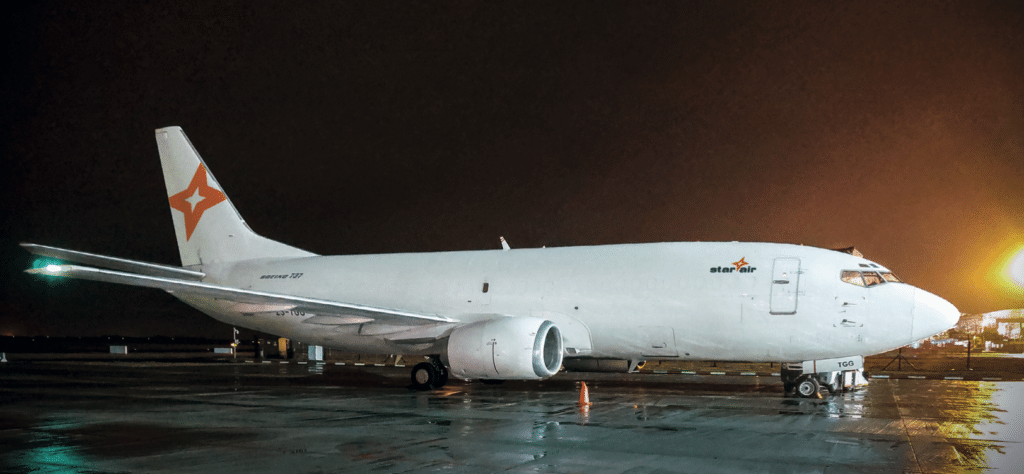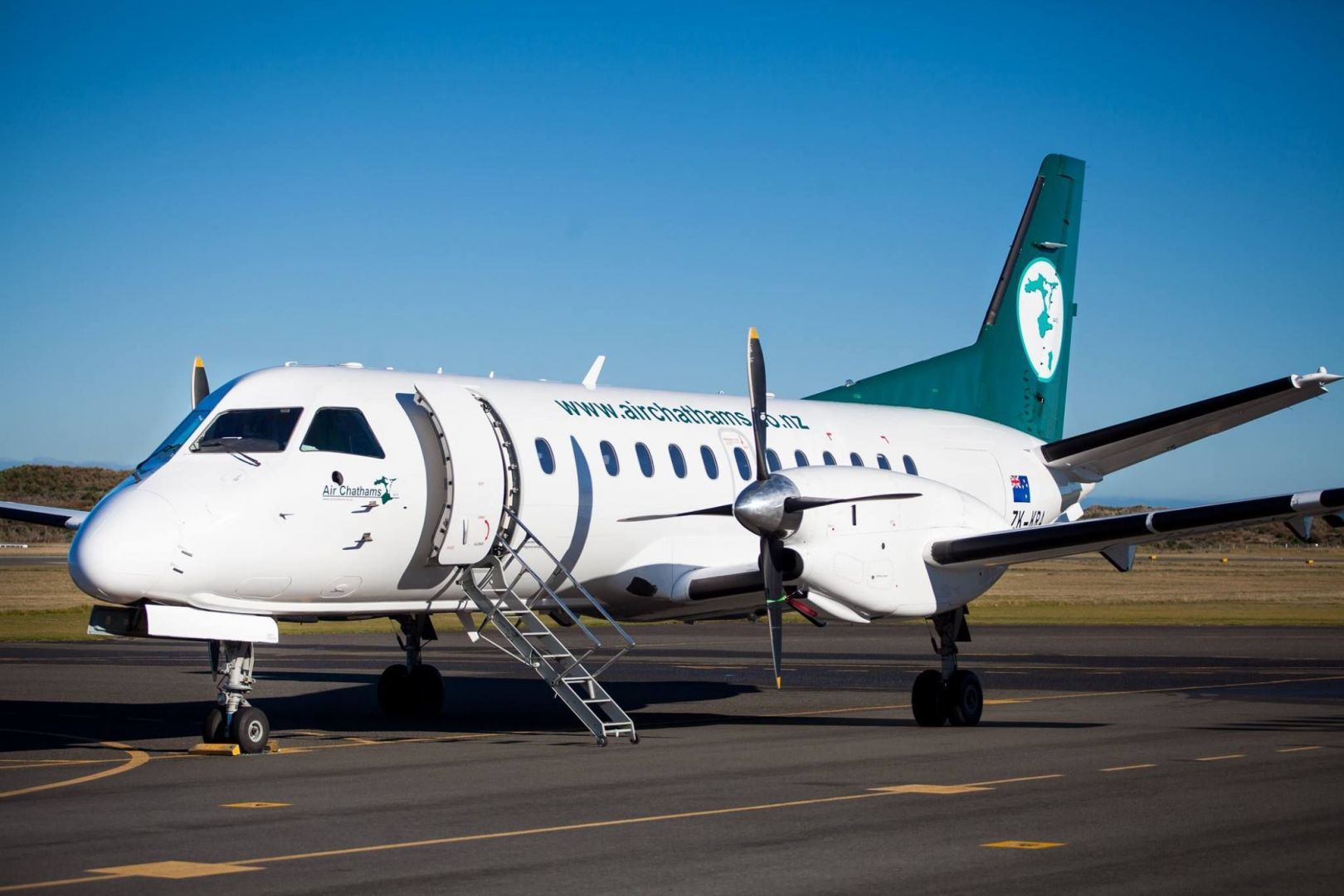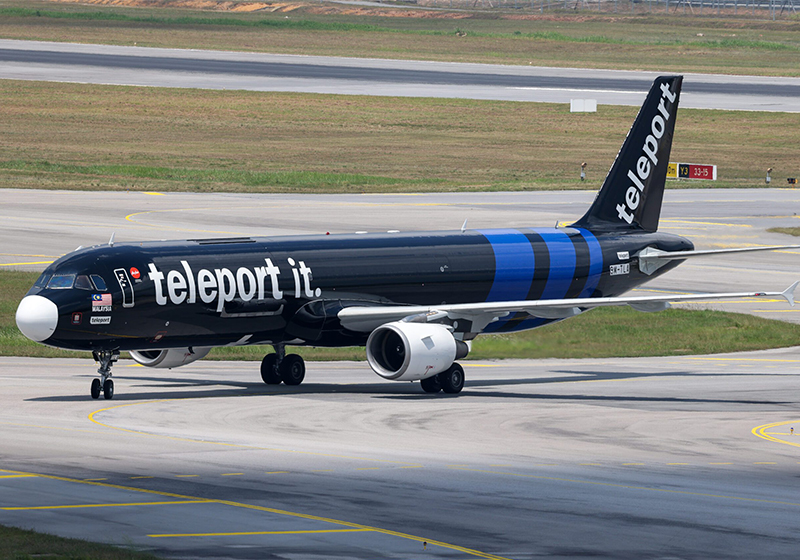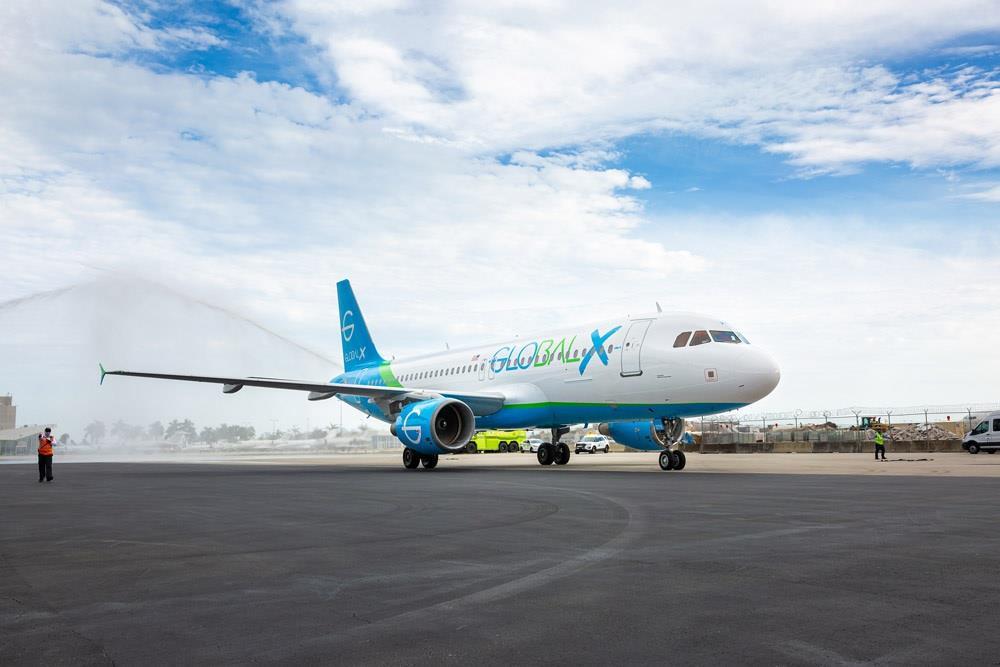
STAR AIR PAPERLESS JOURNEY WITH EFBOne
Since its formation in 2000, Star Air Cargo, usually called Star Air and based in Johannesburg, South Africa, has delivered world-class chartered airline services to the aviation industry. They run freight aircraft with freight schedules at night for BidAir Cargo, and also have passenger aircraft used for ad hoc charter leasing in South Africa and the region. The business has grown to a fleet of six Boeing 737 classics, both freight and passenger variants, and more than one hundred staff with decades of dedication to on-time and on-demand operations. This has allowed Star Air to cement a trusted legacy of safety, quality and reliability, whilst securing our relationships with valued clients. Led by Marcel Liebenberg and Peter Annear, Star Air is driven to maintain its competitive share of the aerospace market whilst providing attention to detail alongside best practice service delivery.
WHY STAR AIR NEEDED A NEW EFB SOLUTION
Star Air, like many other airlines and charter companies, is always finding new ways to keep up with technology in the aviation industry. In that context, what better, they thought, than to invest in a state-of-the-art Electronic Flight Bag system. Something that would not only benefit the business and the operation but would generate some useful feedback. Star Air was also concerned about limiting costs; paper is becoming a very old and costly method today.
If they want to be the best and compete with the best, they had to up our game with the next generation technology.
Keeping up with technology and running a high standard EFB would give any airline/charter company the edge over competitors.
THE CHOICE OF IFS
Since deciding that the company would have an EFB and would digitalize the whole operation as far as possible, Star Air undertook some research into possible solutions in the market. IFS remained their first option. That was because some local airlines also use IFS and have completed the approval process with the local authorities. There was also a cost factor to be considered.
Given those factors, Star Air felt that IFS would be the best fit for them. It also made a choice easier as the IFS systems (PFB and EFBOne) both ran smoothly from the start. The IFS team provides 24/7 support and is always helpful. They strive to be the best and we can see it in their products. With constant improvements and bug fixes, they maintain a well-managed system.
THE IFS EFB SOLUTION
IIFS started in 2001 creating performance and Mass & Balance applications for the Nokia Communicator phones. In 2004, the new generation of tablets meant that software requiring power could be put on a tablet. Later that year and IFS developed its first Class 1 EFB solution. Not just some Apps, it was a platform covering all the processes from pre-flight and in-flight to post-flight.
A couple of years later IFS upgraded to a Class 2 EFB incorporating LAN cable connections to the door. IFS Class 2 solution involved the more complex modules like Mass & Balance, Performance Integration and Document Library.
In 2011, IFS launched an iPad app — The Paperless Flight Bag, and from that moment on developed and maintained the iPad and Windows solutions in parallel. 2020 brought rapid growth. IFS had more contracts than it could serve in due time, and it was clear that something had to change. It was impossible to scale and keep clients happy while using the old fashioned approach of building an individual app per airline. That is when IFS appointed Alex Ribin, an experienced entrepreneur and technologist as its CEO. He was on a mission to bring IFS back to its innovative roots. The direction was set clear — to build the first cross-platform SaaS EFB, now branded as EFBOne.
A TRUE SaaS
SaaS stands for Software as a Service and it is the modern way of software delivery. The SaaS approach is to craft a flexible product that can be customized by the users themselves. In this case by the EFB admin or the flight ops department, without the need to create support requests, pay, wait etc. Just click and update. Furthermore, SaaS is typically hosted on the cloud. That eliminates the need of on-premise setup of any sort. Lastly, a true SaaS company constantly improves its product based on feedback or requests, and continually releases new features and improvements to all users.
EFBOne is also a cross-platform platform. That means it is the same code that runs on both iOS and Windows devices, making it the obvious choice for airlines with mixed device types. It also offers significant efficiency gains for the development team that maintains just one app instead of separate applications per platform. The maintenance workload is cut down to a fraction. This way has enabled IFS to invest heavily in new developments. One example is a new modern REST API that now powers EFBOne, which allows any third-party provider to integrate with it conveniently. That offers seamless data transfer from any system.
Later this year IFS plans to release a new export tool, allowing the EFB admins to set new data flows fully on their own. That will optimize the airline digital efficiency to the max, without any extra development costs.
IFS is not resting here. It is set on the course to become the EFB of choice for any airline that believes in the power of technology.
Star Air has been running EFBOne, the newest solution from IFS. This was released to them earlier in 2022. The core calculations remained the same but the solution received a major facelift. That made the application easier to use, look and feel better. IFS has met all Star Air’s needs and is constantly improving the system/application. IFS provides toggle switches in their application which enable you to jump between company applications like Boeing OPT and Jeppesen FD Pro.
EFBOne integrates with about thirty different systems on the back-end IT side. Many flight planning systems, scheduling and crew planning integrations. The solution can also export data to maintenance systems. There are integration options for safety management systems. Customized integration has been traditional in the market but, with EFBOne, IFS has standardized the way it imports and exports data to other systems. That creates unique toggle switches in that allow users to quickly jump to a different app with a single touch.
STAR AIR’S SELECTION AND IMPLEMENTATION OF EFBONE
The process was made longer with the impact of Covid-19.
When Star Air started our EFB research, more than two years ago, they decided that EFB would be the right solution. They started to research different platforms and tools that would be used. Then put together an EFB team. After that implemented the first iPad for testing with the chief pilot to see whether or not they liked the product. The decision to select IFS was not only on the clear merits of the solution but also due to them already being an approved application with the local authorities in South Africa.
When they finally got the go-ahead from everyone, they sourced all the iPads needed and arranged crew training and familiarization with the device. Star Air arranged training into three sessions. First to get used to the iPad; second with IFS and all other company systems, using some simulated test flights, and third with the Boeing OPT (Onboard Performance Tool) training. Then implemented the iPad into the flight deck system. After lots of trial and error, they felt that we were ready to implement the project and apply it to the local authorities to go live, starting with a demonstration in the Simulator. After local authorities were satisfied, they gave approval to do live testing for six months.
During this period they had to submit post-flight reports and documents as evidence. After six months, a live demonstration full flight was conducted routing Johannesburg – Cape Town – Johannesburg (JNB-CPT-JNB) with the local authorities inspecting the EFB process. Finally, the approval letter was issued and Star Air is now EFB-approved as an operator.
Star Air also regularly sends a form to all those involved to ensure that they have the apps they need and that they are all working from the same information and solutions.
CHALLENGES
As for challenges, they include facing the unknown and getting familiar with a new system. Star Air started this project with a dedicated team. This was a massive task as they have never done an EFB project as a team or company. Where to start? is a common question that all ask when tasked with a big project and that is exactly what Star Air asked themselves. A lot of research and training made the road to EFB approval much easier. They faced many obstacles as a team and company but could get over these obstacles with proper planning, research, testing and training.
Moving from a paper-based to a paperless system is a big change but their EFB admin says with confidence, a change that everyone could adapt to. They have grown as a company and it is also easing their way to an eco-friendly environment. Every time that the airline implement a new system, it has to think of a strategy on how to train people, including whether it could be remotely or online, and to consider what will be the impact on everyone in the business, on the operation and how we can implement it in the best possible way.
ORGANIZING AND CARRYING OUT TRAINING
Star Air has a wonderful training section in their EFB Manual that takes a new user from start to finish. Company’s training consists of iPad familiarization training, Systems training and Performance training. Each training section gets done by the EFB Administrator and OPT Administrator. Each pilot will also write two exams, one after each training section, to test their knowledge of the EFB. The chief pilot will roster the new member for onboard training in the flight deck and a week of flight training to be conducted on live flights. The senior Captains will also conduct training on new crew members.
IMPACT OF THE NEW SYSTEM ON USERS
The airline has received some really positive feedback from users and everyone was on-board when the change was announced. Star Air has seen a massive change in the office staff and flight deck crew on the new EFB system.
The airline has noticed that Flight Crew and Operations Personnel are more relaxed and focused on the task at hand. They have also noticed that errors are at an all-time low.
Changes can be made with a single click of a button. There’s no messy cockpit or flight operations and Star Air has also cut their previous paper usage by sixty percent and they can see those numbers climb as more systems are being digitalized. This has had a big financial impact on the company.
With the EFB solution Star Air could easily reduce boarding time by 20 minutes and briefing time by 15 minutes.
This, in turn, makes the operation smoother and more controlled. It is also easier to deal with last minute changes without printing out a single page. IFS has truly changed the business and mindset of Star Air.
Star Air have received such positive feedback from the staff and crew on the implementation of the EFB with most crew stating “it’s about time” as our old paper base system was due for an upgrade. Technology is the future and Star Air now welcomes it with open arms. Who does not want to work on an iPad/tablet compared with a paper base system? This adventure and project opened our eyes to new possibilities. Star Air can now keep up with the market and with demand. We are happy to be approved and able to use the EFB platform to its full extend.
BENEFITS FROM IMPLEMENTING EFBONE
Star Air has experienced a lot of benefits, and some are listed below:
- Paperless environment (cost of printers, toners and paper has reduced a lot);
- Sterile and clear environment (Operations and onboard the aircraft);
- Relaxed and focus personnel (Operations and Flight Deck Crew);
- Ease of last-minute changes;
- Accurate charter quotations;
- Fuel saving;
- Accurate planning (both for Operations and Flight Deck Crew);
- Briefing time has been reduced compared to the paper solution;
- Boarding times have improved;
- Staying ahead or equal to opposition systems;
- Integrating to our clients (airlines/charter companies) on a much easier level.
The list of benefits keeps on growing and, as the EFB Solution keeps evolving, they will see further, bigger benefits compared with the previous, outdated paper solution.
CHANGES MADE BY STAR AIR CARGO
The airline had to change the culture to accommodate the new and improved EFB solution and current trends as well as the technology at their disposal. This included updating procedures and processes in our manual and daily use. This was because they are now doing things remotely and online with no more need for paper or classrooms and no need to bring people in to a particular location for training.
They had to update and change manuals, but this was all for a better future with the EFB solution. The changes were completely positive and have motivated us as a company to reach for new heights.
The EFB Solution has, of course, opened new processes and procedures within the company but it has propelled the airline forward into a new era of aviation.
Star Air is now keeping up with the trends. These changes are all extremely positive and should motivate any company to investigate this option or solution. It has completely changed Star Air and we are now an even stronger competitor in the industry.
FUTURE PLANS
Star Air will work hand in hand with IFS on new upgrades and solutions for the EFBOne platform. Their next project will be to implement the Boeing OPT launcher function that will enable us to swiftly jump between EFBOne and Boeing OPT. This project will soon commence and take effect after mid-summer 2022. One of other projects that would be to make training available online for all the EFB systems and procedures. Star Air believes in improvements, whether it is in their staff, office environment or systems. They prompt a positive change and the challenge of improving on all functions within the business. The airline will also start internally to digitize as much of our own systems and procedures as far as possible. They would like to achieve an eco-friendly company in the near future. Star Air will always strive to improve and be the best at what they do.
This article was published on Aircraft It Summer 2022 eddition, written by Shaine Labuschagne, EFB Technical Administrator, and Star Air Cargo. You can read it here.


